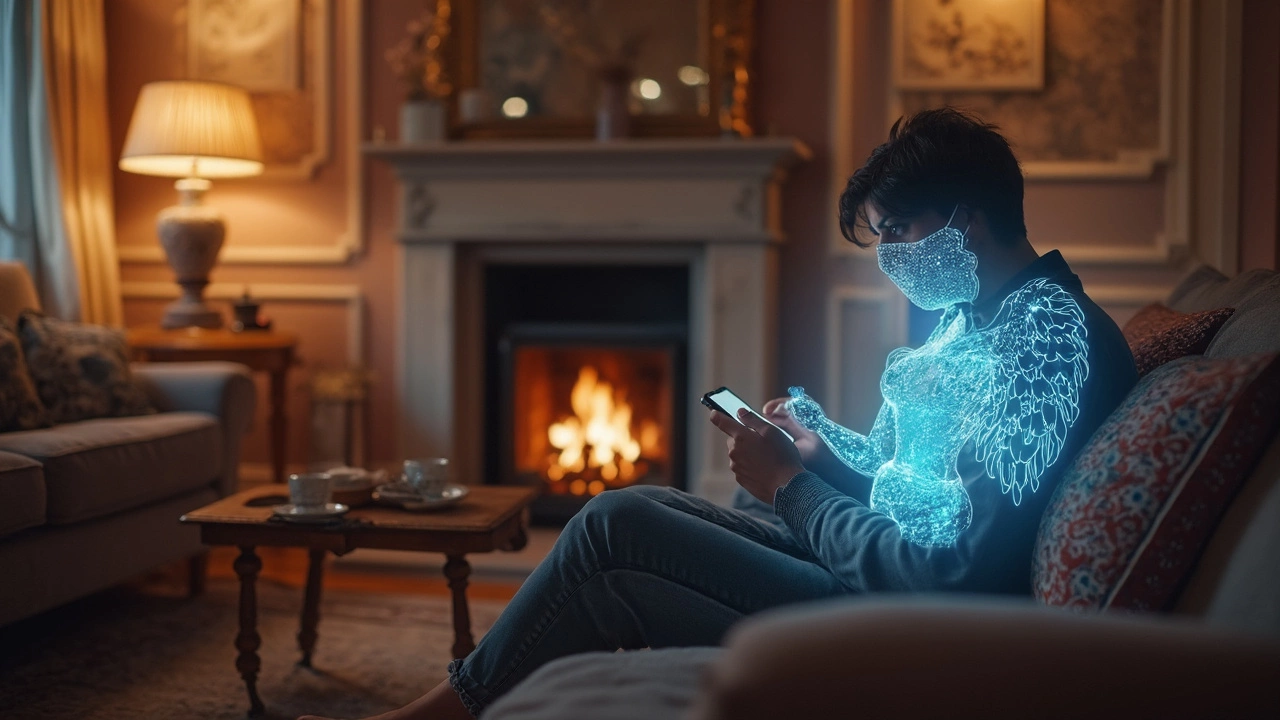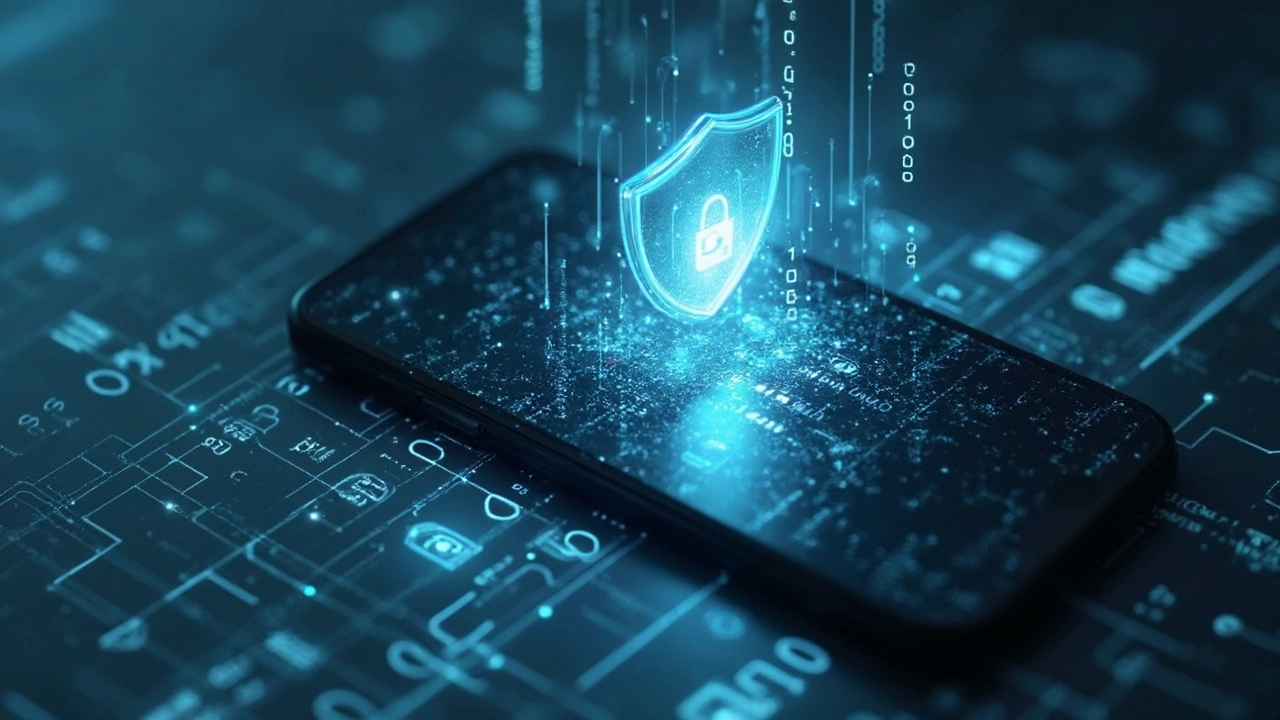So, you’re wondering if any app can just waltz in and use your camera. Fair question! The short answer is: not really, but some apps might try to sneak in if you’re not careful. These days, privacy is gold, and nobody wants their camera rolling without them knowing.
Think of your phone or computer as your trusty sidekick. You’ve got control over which apps get the green light to use the camera. When you first install an app, it usually asks for permission. If you say yes, it's got the access. But don’t worry, you’re not locked in forever; you can change this any time in your settings.
Now, here's where it gets sneaky. Some apps might ask for permissions that seem unrelated to their functions. Always ask yourself, 'Does this game app really need my camera for those cute cartoons?' Probably not!
- How Apps Gain Camera Access
- Managing Permissions on Your Device
- Signs Your Camera Privacy is Compromised
- Protecting Your Camera Privacy
How Apps Gain Camera Access
Alright, so how do apps get their sneaky hands on your camera access? Well, it all starts with permissions. When you install an app, it's like signing a contract. But instead of mumbo-jumbo it (generally) clearly asks if it can use your camera, mic, or even your location.
The permission request usually pops up the first time an app wants to use a feature. Let's say you love taking selfies and just downloaded the latest camera app. It’s going to ask to use your camera, right? But sometimes apps ask for more than they need, like a weather app wanting to access your camera. Seems fishy, right? Always question why an app would need specific permissions.
According to a tech researcher at Gizmodo, "About 70% of users skip through permission requests without reading."
"The tricky part is apps asking for permissions that seem unrelated to what they actually do," explains Alex Monroe from SecureTech.Often, apps that don't behave like they should are called "malicious apps." These aren't your friends, and they potentially could try accessing your camera without a good reason.
In some rare cases, apps might exploit bugs or vulnerabilities in older software versions to get access without your say-so. That’s why keeping your device updated is like putting fresh locks on your door.
| Percentage of Users | Action |
|---|---|
| 70% | Skip reading permission details |
| 30% | Review permissions carefully |
Remember, when it comes to app security, you’re the gatekeeper. Always keep an eye on what permissions you’re granting and ask yourself if they make sense for the app’s purpose. Protecting your smartphone privacy is all about staying aware.
Managing Permissions on Your Device
Alright, let's get into the good stuff: how you can actually manage the permissions on your device to keep those nosy apps from peeking through your camera lens without you knowing it.
Most smartphones have made it pretty simple to check and change what apps can access, including your camera. Whether you're using Android or iOS, taking control isn’t a complicated job.
If you’ve got an Android, head straight to your app settings. Here’s the deal:
- Open the 'Settings' app.
- Tap on 'Apps' or 'Application Manager'.
- Select the app you want to check.
- Tap 'Permissions' and toggle the camera 'off' to deny access or 'on' if you’re cool with it.
For iPhone users, it’s just a tad different, but still super easy:
- Jump into 'Settings'.
- Scroll to find 'Privacy'.
- Tap 'Camera'.
- You’ll see a list of apps that have requested access. Flip the switch to turn access on or off.
Now, why does managing these permissions really matter? Well, apart from the obvious privacy concerns, it’s about keeping your device secure. Apps with unnecessary access could potentially misuse data, impact battery life, or even cause app glitches. So, a regular check-up on these settings is a no-brainer.
Interesting Fact: According to a recent security study, users who regularly manage app permissions reduce their risk of data breaches by nearly 40%. Wild, right?
You know what’s great? Most devices even notify you when an app is attempting to access your camera for the first time. Always double-check before blindly clicking 'Allow.'
By the way, if you really want to go ninja-level on this, consider apps designed for app permission management. They’ll alert you to odd activity and help streamline how you handle app security without breaking a sweat.

Signs Your Camera Privacy is Compromised
Spotting if your camera's been compromised can save you a lot of trouble. Let’s dive into some signs that someone might be snooping on you.
First off, keep an eye (pun intended) on that little camera indicator light. Most devices have a small light near the camera that flickers on when the camera's active. If you notice it turning on at odd times, like when you’re not taking selfies or on a video call, that’s a red flag!
Another thing to watch out for is battery drain. Unexpectedly fast battery depletion could mean an app is using your camera access in the background. You know your phone better than anyone; if you’re suddenly having to charge it more often, something might be up.
On top of that, unusual data usage is another giveaway. Cameras and videos consume hefty data. Sneaky apps may upload your recordings, causing spikes in your data usage. If you see data usage jumping through the roof without binging on YouTube or Netflix, it’s time to investigate.
- Indicator light on when not in use
- Rapid battery drain
- Unexplained data usage spikes
- Strange apps you've never installed
Additionally, check for mysterious new apps on your device. Sometimes malware disguises as legitimate apps, hiding in plain sight. If there’s an app you don’t remember downloading, it’s wise to dig deeper or delete it.
Catch these signals early, and you’ll be better equipped to secure your smartphone privacy.
Protecting Your Camera Privacy
Alright, let’s get into how to keep your camera access secure and private. You’re the boss of who gets to peek through your lens, and it’s not as tough as it seems.
First off, regularly check your phone's permission settings. It’s simple: head to your device’s settings, find the 'Apps' or 'Applications' section, and tap on 'Permissions'. Here you can review which apps have access to your camera and revoke access from any app that doesn’t need it. Clear and straightforward.
Another cool tip is to update your apps and operating system whenever possible. Sounds boring, I know, but those updates often include security patches that fix vulnerabilities which could potentially let apps sneak in without asking.
For those who love a bit of extra security, cover your camera with a small sticker or a camera cover when you’re not using it. It may seem low-tech, but it’s highly effective against unwanted spying.
If you're worried about forgetting to close apps using the camera, you can set up app notifications. It’s a simple trick—when an app accesses your camera, you’ll get a pop-up notification, so nothing flies under the radar.
And, hey, a bit of skepticism never hurts. If an app is asking for random permissions that don’t make sense, like a calculator asking for camera access, think twice before hitting 'Allow'.
Lastly, here’s an eye-opener: A study by Pew Research shows that 79% of smartphone users are concerned about the amount of data collected by smartphones. So you’re definitely not alone in watching your app security closely. Keeping an eye on your smartphone privacy isn’t just smart, it’s essential.

